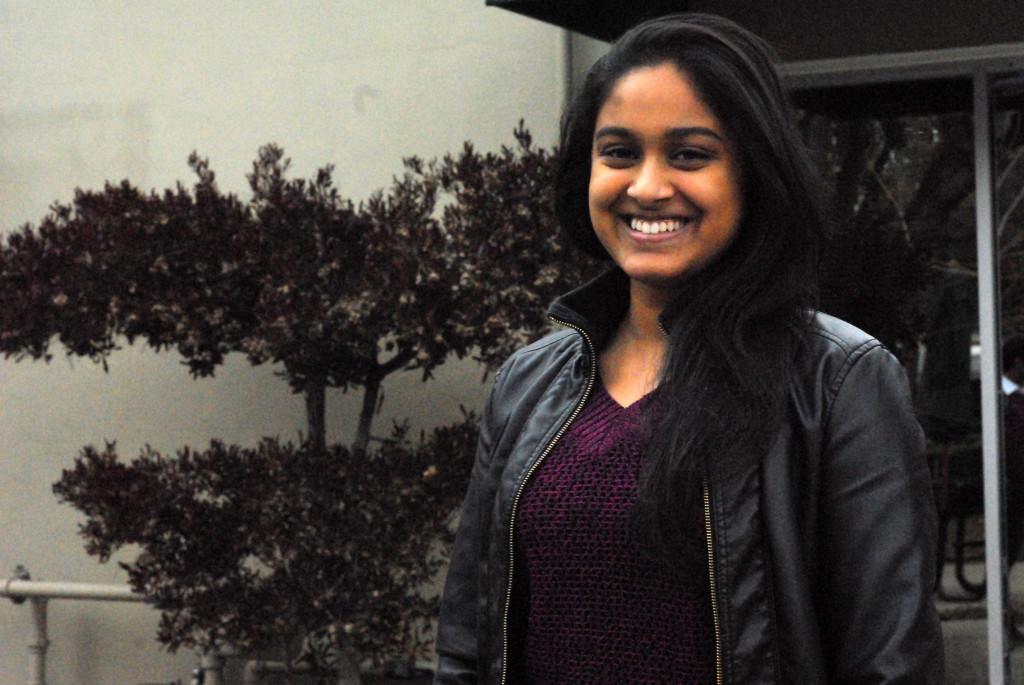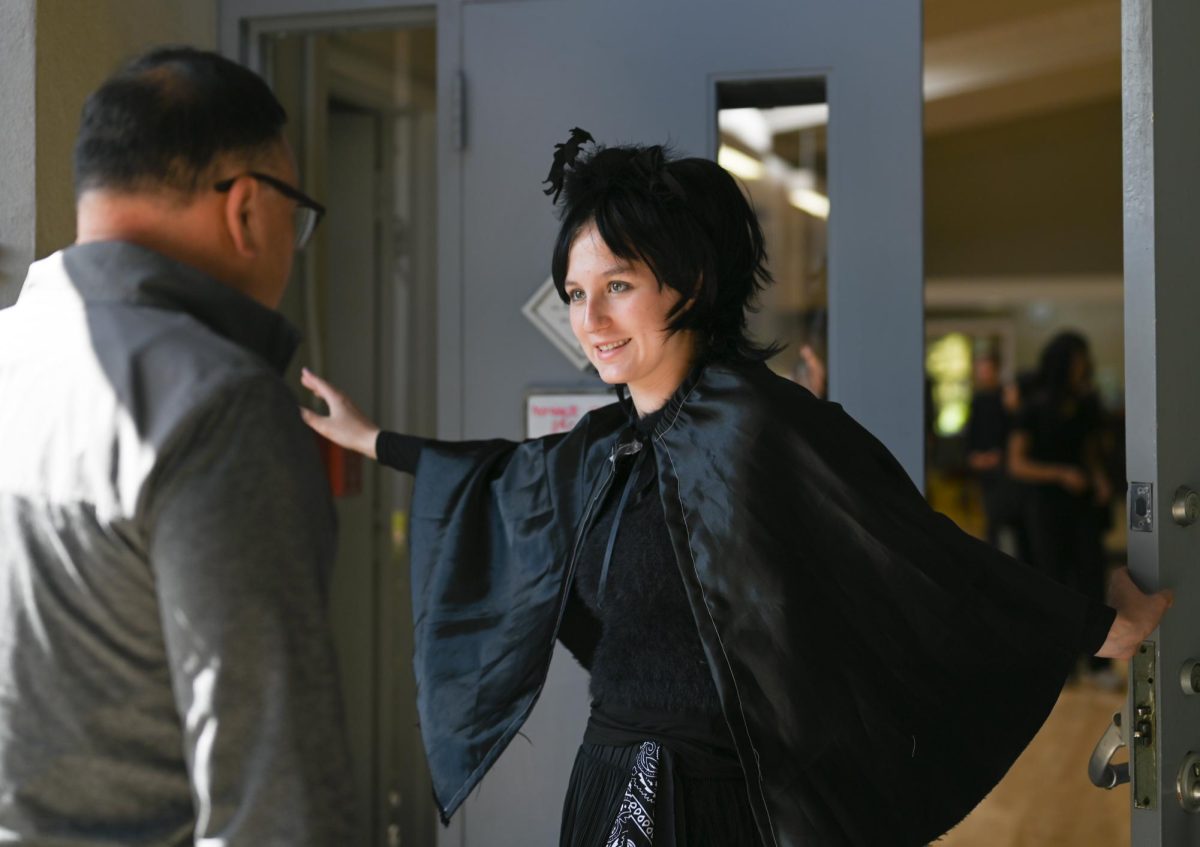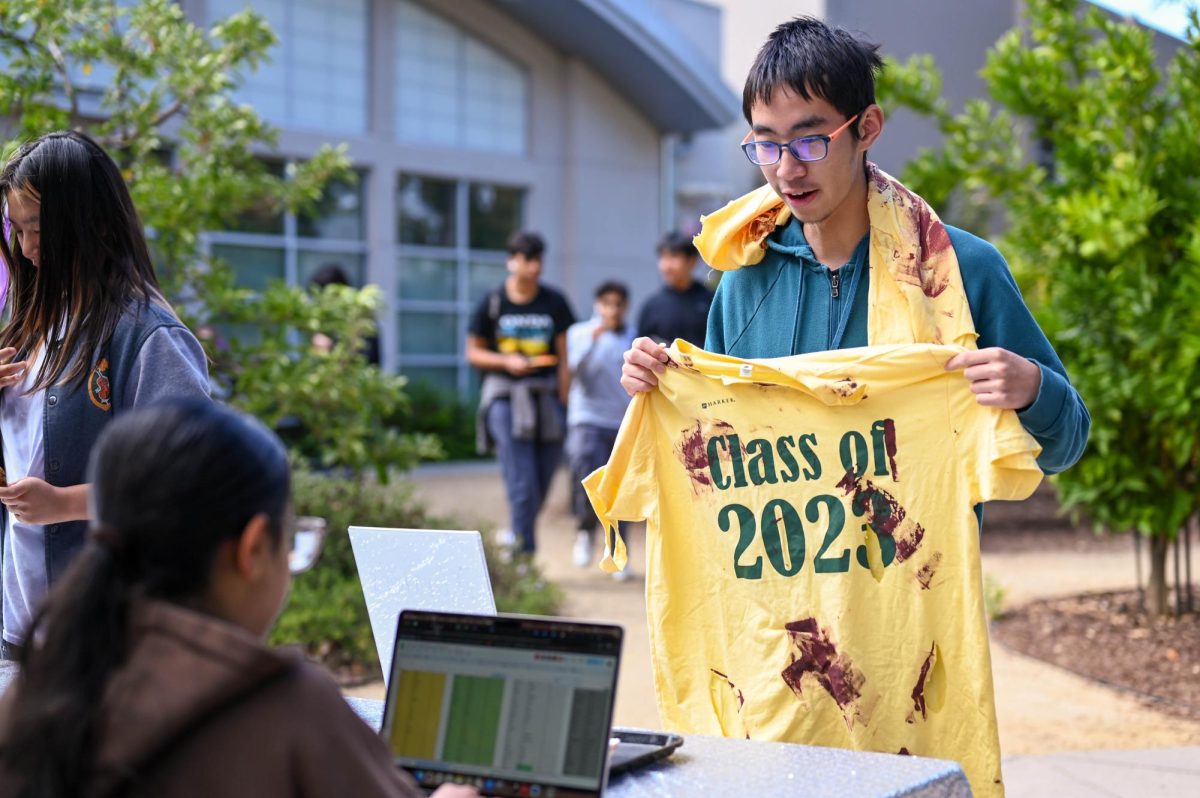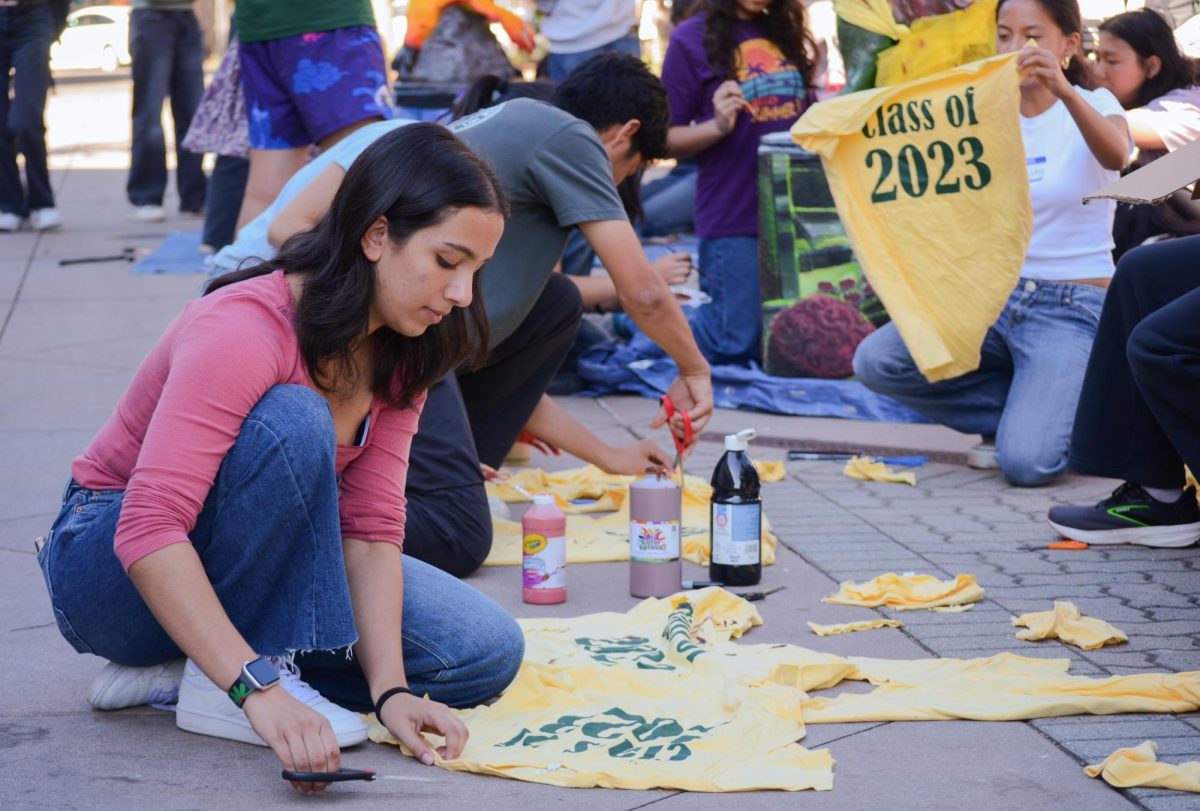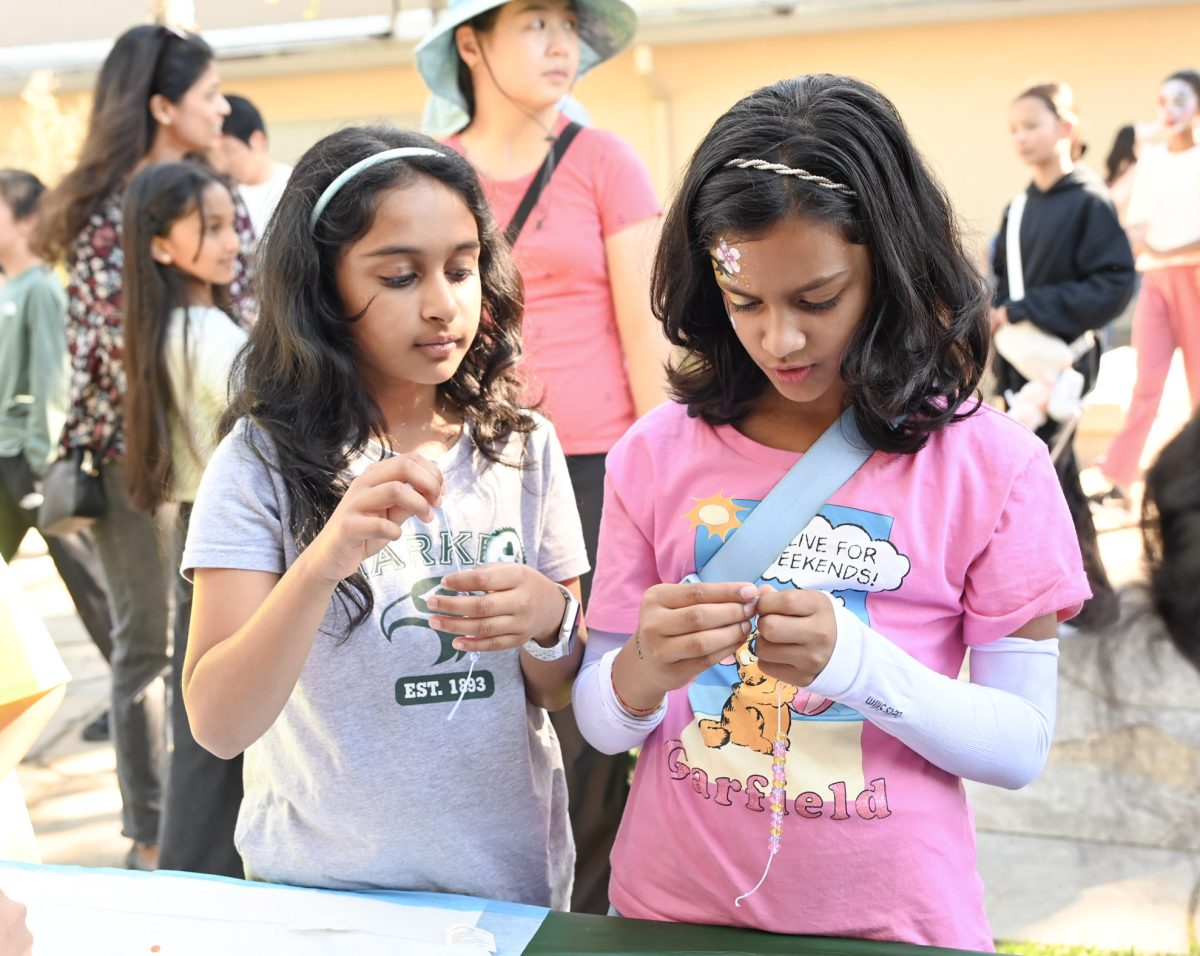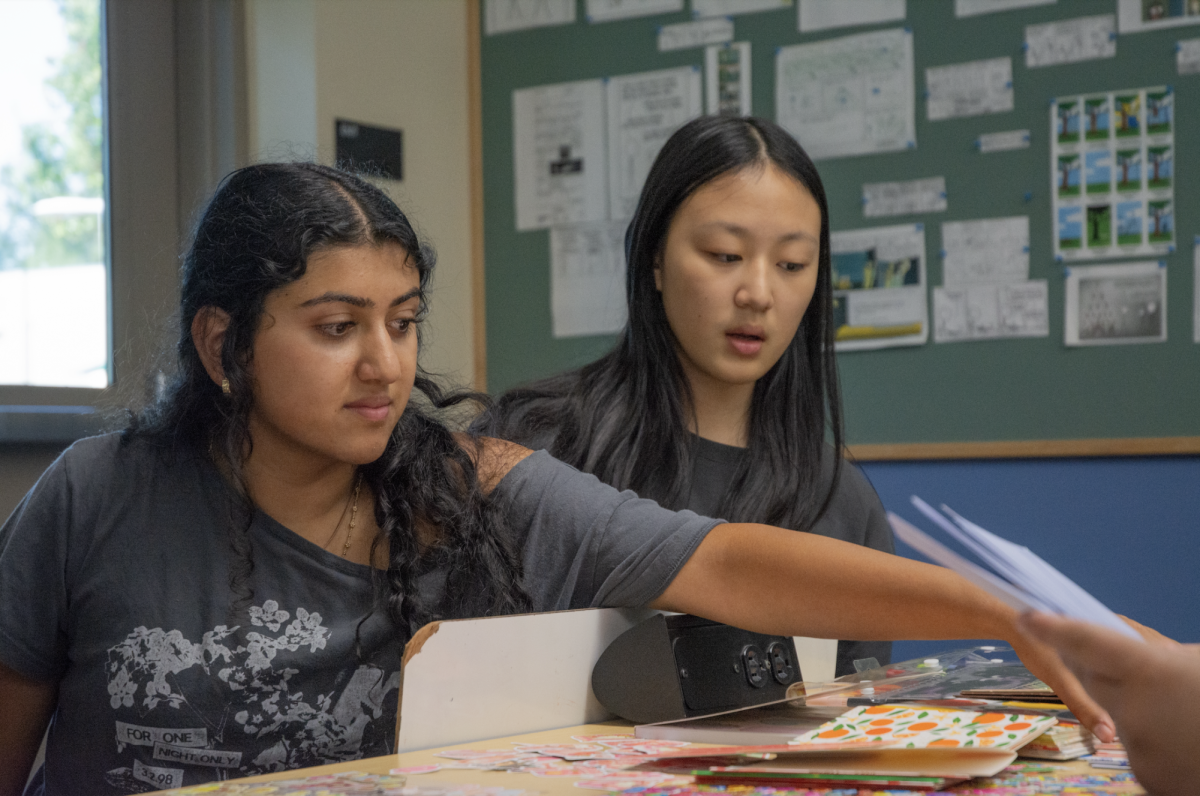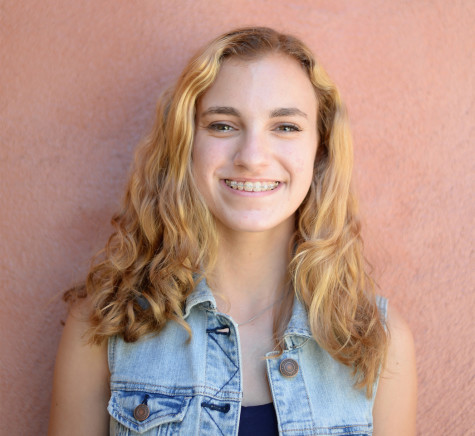Today was a day out of the ordinary for senior Paulomi Bhattacharya. She received much praise and commendation from the community, as many knew she became a 2013 Intel Research finalist.
Paulomi was one of six finalists from California, and the only Intel finalist out of six semi-finalists in the Upper School.
“She has made Harker history because she is the first Harker student who is both a Siemens finalist and an Intel finalist,” Science Department Chair Anita Chetty said.
In her own words, Paulomi’s research is based on a “new drug lead for a common form of blood cancer by using computational and wet lab screening methods.” Her paper was 20 pages long and she revealed that she wrote more than 10 drafts of it.
Ever since Paulomi started to study science, she knew that she loved the subject; however, Paulomi discovered her passion for research during eighth grade. She expressed how her love of both science and experimentation made this research endeavor special.
“Being in the lab working with the people I was able to work with, having the opportunities that I did, and being able to contribute to the scientific community was incredible,” she said.
Paulomi believes that physics and research teacher Chris Spenner has helped her most with her research throughout high school.
“Mr. Spenner has provided constant and unparalleled guidance during my entire time at the Upper School. […] His care and passion for helping us all reach our goals is truly inspirational. But most of all, he has inspired me to pursue science purely for my love of the subject and the thrill of new discovery,” Paulomi said in an email response.
Chetty also became one of Paulomi’s mentors after meeting her through WiSTEM, of which Paulomi is currently an officer.
Paulomi and Chetty worked together as well through Triple Helix, an organization created by an Upper School alumnus for college undergraduates observing the impact of research. The students involved in this organization, including editor in chief Paulomi, visited Cambridge University last year during spring break for a Triple Helix conference.
“Seeing [Ms. Chetty’s] persistent efforts in giving us unparalleled opportunities constantly moves me and inspires me to stay determined despite setbacks or challenges,” Paulomi said in an email response.
Chemistry teacher Dr. Mala Raghavan, who taught Paulomi organic chemistry last year, has further helped her by reading all of her papers that she has submitted, clarifying concepts, and allowing her to borrow countless chemistry books.
“She loves science for sure, and she does have an aptitude,” Dr. Raghavan said.
Although Paulomi thoroughly used the school’s resources to her advantage, when looking for a lab mentor, she sought out around 70 professors to ask for the use of a lab to perform her experiments. She conducted research at University of California San Francisco in the California Institute of Quantitative Biosciences under professor Matt Jacobson from June to September.
From March 7 through 13, Paulomi, along with 39 other finalists, will travel to Washington D.C. for the final round of competition. She is already looking forward to the last step of contest by composing her ideas for the sessions.
“I will be preparing primarily for the interviews for the poster session, mainly explaining my project to various audiences of people, like experts,” she said.
For students who are involved in any type of research, Paulomi recommends to be persistent.
“Research can be very tough, especially being a high schooler working at a university lab, there are a lot of challenges,” Paulomi said.
Read more of Paulomi’s story in this week’s issue of the Winged Post.


















![“[Building nerf blasters] became this outlet of creativity for me that hasn't been matched by anything else. The process [of] making a build complete to your desire is such a painstakingly difficult process, but I've had to learn from [the skills needed from] soldering to proper painting. There's so many different options for everything, if you think about it, it exists. The best part is [that] if it doesn't exist, you can build it yourself," Ishaan Parate said.](https://harkeraquila.com/wp-content/uploads/2022/08/DSC_8149-900x604.jpg)




![“When I came into high school, I was ready to be a follower. But DECA was a game changer for me. It helped me overcome my fear of public speaking, and it's played such a major role in who I've become today. To be able to successfully lead a chapter of 150 students, an officer team and be one of the upperclassmen I once really admired is something I'm [really] proud of,” Anvitha Tummala ('21) said.](https://harkeraquila.com/wp-content/uploads/2021/07/Screen-Shot-2021-07-25-at-9.50.05-AM-900x594.png)







![“I think getting up in the morning and having a sense of purpose [is exciting]. I think without a certain amount of drive, life is kind of obsolete and mundane, and I think having that every single day is what makes each day unique and kind of makes life exciting,” Neymika Jain (12) said.](https://harkeraquila.com/wp-content/uploads/2017/06/Screen-Shot-2017-06-03-at-4.54.16-PM.png)








![“My slogan is ‘slow feet, don’t eat, and I’m hungry.’ You need to run fast to get where you are–you aren't going to get those championships if you aren't fast,” Angel Cervantes (12) said. “I want to do well in school on my tests and in track and win championships for my team. I live by that, [and] I can do that anywhere: in the classroom or on the field.”](https://harkeraquila.com/wp-content/uploads/2018/06/DSC5146-900x601.jpg)
![“[Volleyball has] taught me how to fall correctly, and another thing it taught is that you don’t have to be the best at something to be good at it. If you just hit the ball in a smart way, then it still scores points and you’re good at it. You could be a background player and still make a much bigger impact on the team than you would think,” Anya Gert (’20) said.](https://harkeraquila.com/wp-content/uploads/2020/06/AnnaGert_JinTuan_HoHPhotoEdited-600x900.jpeg)

![“I'm not nearly there yet, but [my confidence has] definitely been getting better since I was pretty shy and timid coming into Harker my freshman year. I know that there's a lot of people that are really confident in what they do, and I really admire them. Everyone's so driven and that has really pushed me to kind of try to find my own place in high school and be more confident,” Alyssa Huang (’20) said.](https://harkeraquila.com/wp-content/uploads/2020/06/AlyssaHuang_EmilyChen_HoHPhoto-900x749.jpeg)



